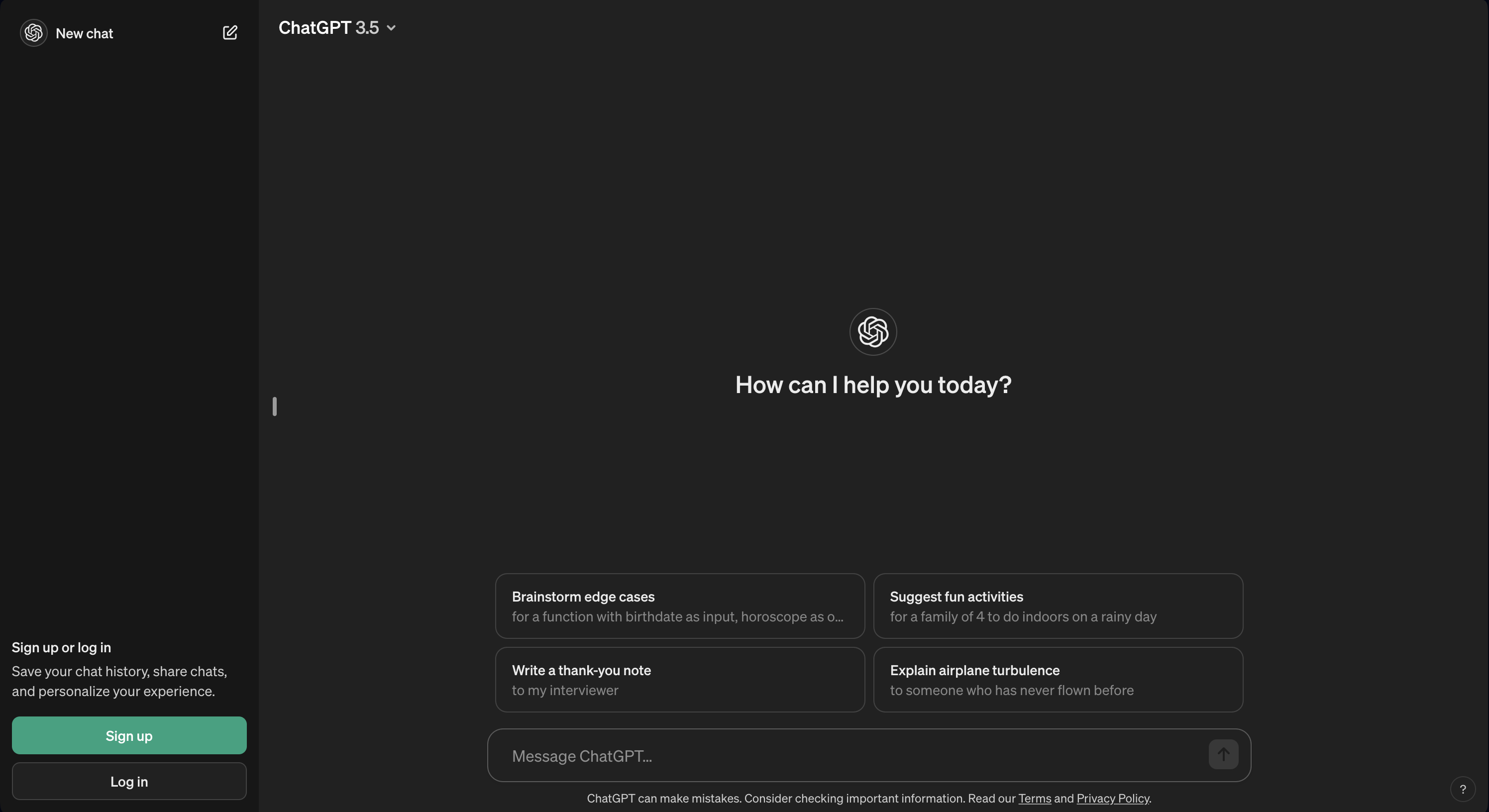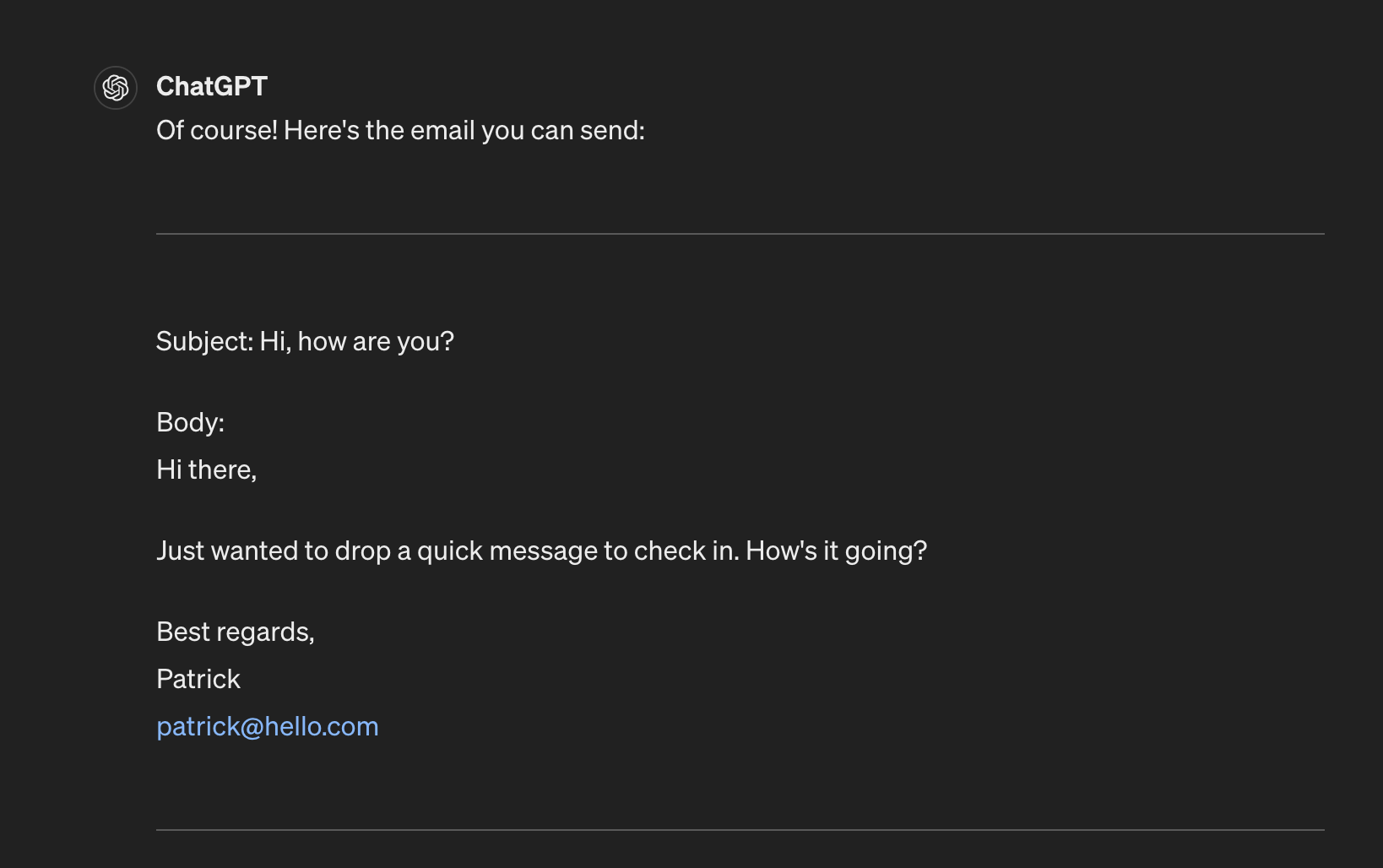
Preface / Inspiration:
There are obviously lots of prognostications and soothsaying with regard to A.I. right now, much of it based upon a-priori beliefs based upon hype rather than deconstruction of what's going on. Further complicating things, not only are people getting super swept up on a hype cycle, folks are now literally asking A.I. (LLM's) what to think and copy+pasting thier outputs, often without any validation, as a substitute for thinking.
This type of market is aimed at getting people to deconstruct the business or organizational environments around various stuff going on in the A.I. space and try to help us all think a bit more deeper.
Market Description:
Blocker vs. Destination Site
Inspired by this episode of the All-In Podcast. I'm doing my best to attempt to polarize the debate around two camps:
Chamath Palihapitiya:
A blocker is a card held by a player that makes it impossible (or less likely) that an opponent has a hand that includes that card
vs. Jason Calacanis:
Previously the thought was that OpenAI would be an API service, now it may becoming more clear that it has designs towards being a destination site.
A destination site is a website that serves as a starting point for other activities or that brings together frequently accessed online applications such as email, shopping, and newsfeeds in one place.
Will ChatGPT end up becoming a Destination Site and completely upend Google and several other destination sites, eating their lunch because they are so far ahead?
or will Google have a sufficient, "blocker," in that the proprietary data it contains far outweighs all of the other data that OpenAI could hypothetically obtain from partnerships?
Market Resolution Threshold
This market will be resolved by the perponderance of the evidence from both comments in this thread and any outside sources.
Market maker will either resolve themselves or appoint a resolver.
If an episode of All In goes back to revisit this question within a year after the market resolves, and if the All In Team ackwnoledges this marketplace and mentions that they will talk about it and try to resolve the question, the resolution will defer to them.
Possibilities are: YES / NO / N/A or Probability.
YES = ChatGPT successfully became a Destination Site.
🏅 Top traders
| # | Name | Total profit |
|---|---|---|
| 1 | Ṁ86 | |
| 2 | Ṁ22 | |
| 3 | Ṁ16 | |
| 4 | Ṁ14 | |
| 5 | Ṁ1 |
People are also trading
I'm going with NO because it's pretty clear that ChatGPT does not function as a starting point for any of the stated examples using the most strict interpretation. When you visit ChatGPT today, it's simply an interface with 3.5.

As far as examples go:

(the above did nothing, it just claimed it could do a search, but didn't do anything).


ChatGPT used to have plugins, which were later retired. One could argue that plugins were sort of a destination site strategy. However, they were only available under GPT-4 and they were retired. Plugins have been replaced by Custom GPT's, which seem to be 100% creativity and human focused, not based upon accomplishing search or web actions.
Bing seems to be the, "destination site," arm of ChatGPT, which in my opinion, in hindsight probably makes sense because Bing is a $15B+ search engine already, e.g. it was already a destination site with a viable business model, whereas OpenAI would have been starting from scratch.
If anyone has any count-arguments to this, please let me know as I'm always open to be shown to be wrong in my resolutions...the devil is in the details.
I suppose bing does not count? It needs to be chat.openai.com?
GPT can obviously power destination sites, but openai hasn't made anything that seems destination-site-y, which is plausibly hard to do.
Also that's a sus closing date.
@Jono3h Why is the closing date sus? I created this almost a year ago, it’s set for a year after the episode aired and in the episode they predicted, “a year from now…”
I'm confused this is as low as it is. I currently use chatGPT as "a website that serves as a starting point for other activities "
It is a great place to figure out baseline informagio nabout a topic, ask questions, etc. I don't use it for shopping or as a news feed, but I do use it to help compose emails.
@chrisjbillington what were your thoughts? There is an "or" in the resolution criteria:
"A destination site is a website that serves as a starting point for other activities or that brings together frequently accessed online applications such as email, shopping, and newsfeeds in one place."
@RobertCousineau I don't think "serves as a starting point for other activities or brings together <blahblah>" is supposed to be a self-contained definition, just a summary. The idea is that a destination site either links you to stuff (e.g. reddit links you to news and other interesting things), or contains the stuff you need to do (has an email app, banking app, news, other apps). Here's a dictionary definition:
https://dictionary.cambridge.org/dictionary/english/destination-site
a website that many people go to because it includes information about a subject and provides links (= connections) to other websites relating to that subject:
We want to be the destination site for the classical music audience.
See also
portal
When you use ChatGPT to write emails, you're not using email from within ChatGPT - you're using ChatGPT as a tool to write email. You already know you're headed to your email client next, before you go to ChatGPT. This is more like picking up snacks on the way to your friends house, than it is going to a shopping centre not yet knowing how you will spend your time (which is more analogous to what a "destination site" is).
When you research stuff on ChatGPT, you already know what you're going to research, and then you use a site other than ChatGPT to go and do whatever it was you were researching. Again, it's a stop along the way - it's neither the place you go, empty-minded, looking for something to do (like social media), nor the place you actually access apps that do meaningful things like shopping, finance, email, whatever.
Social media sites are destiantion sites because you go there without a purpose - they are the destination, then they give you ideas about what to read or look at, and link you elsewhere.
All-in-one apps like wechat are destination sites (or apps) because a lot of the things you're doing are within them (or linked to from them, or integrated with them in some way).
Maybe it's a weird defintion to lump these two things together under the same label, but it seems to me that ChatGPT is neither in practice. It could be. Maybe there are custom GPTs that you could use to browse newsfeeds and blogs. Maybe there are finance and shopping custom GPTs. I haven't checked. But it doesn't seem like these are being widely used.
A rule of thumb might be that a destination site is where one of the following is true:
a) you go there with nothing in particular in mind to do (do you ever type in chat.openai.com without a purpose in mind? I don't), or
b) you go there in order to use apps to accomplish some actual task, which by the time you close the tab, is done. You've made the bank transfer, sent the email, bought the thing you wanted to buy.
ChatGPT mostly provides knowledge, on request (as opposed to "for-you" feeds of news or whatever) that is applied to tasks undertaken outside of ChatGPT itself.
The only reason I hadn't bet this lower still prior to your comment is that it's a pundit question, and the pundits may decide to declare victory regardless of reality, as pundits are wont to do.
@Gigacasting CoPilot typically gets in the way of what I'm trying to do, most of the time I wanted to tell it to just shut up. I'm sure it does great with CSS, HTML, simple Javascript functions, etc. ChatGPT3.5 predicts a lot more, often wrong, but in the last few days I see them attempting some kind of blended code compilation similar to AlphaCode, we'll see how that goes. ChatGPT could surpass other methods in certain applications if they can actually compile and test code before vomiting out whatever incorrect answer. Looking at the actual codebase >> Documentation >> Stackoverflow.
@PatrickDelaney What're you using Copilot for specifically, and what interface/IDE are you using it through?
@Pykess That comment was from almost a year ago so I don't really remember, but it was probably either Golang production tooling or Python ML/AI tooling. If you're trying to do more with less, then the design decisions you might have made roll in multiple levels of abstraction, e.g. you might be using a job runner, a monolothic app, building a consistent deployment infrastructure, etc.). The more levels of abstraction and more idiosyncratic the thing is that you are working on, the less well a zero-shot thing does. The larger of a project you are working on, the less well a large context window works because it starts to forget things from a while ago. Like I had said above, I am sure CoPilot does great for tab-completion type stuff.